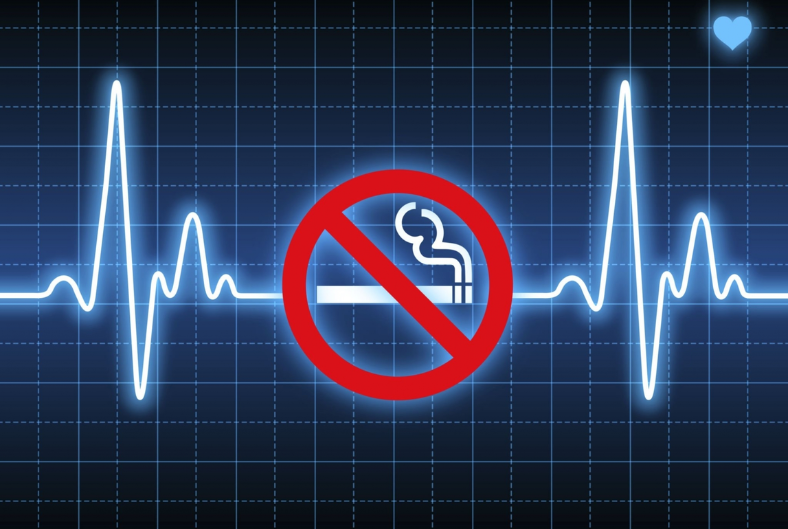The adverse impact of smoking on various organs, especially the heart, has long been a significant concern in public health. Cigarette smoking is widely recognized as a leading risk factor for cardiovascular diseases, inflicting considerable damage on the heart and blood vessels. In this article, we will delve into the profound effects of smoking on heart health, exploring the mechanisms through which smoking contributes to heart disease and emphasizing the importance of quitting for a healthier cardiovascular system.
The Connection between Smoking and Heart Disease
Atherosclerosis: Smoking plays a pivotal role in the development of atherosclerosis, a condition characterized by the buildup of fatty deposits (plaques) within the arteries. The harmful substances present in tobacco smoke, including nicotine and carbon monoxide, provoke damage to the inner lining of blood vessels, triggering an inflammatory response. Consequently, cholesterol and other substances accumulate within the vessel walls, leading to the formation of plaques.
High Blood Pressure: Smoking is a well-known risk factor for hypertension or high blood pressure. The nicotine in cigarettes raises heart rate and causes blood vessels to constrict, resulting in elevated blood pressure levels. Sustained high blood pressure imposes additional strain on the heart, weakening its pumping capacity and increasing the likelihood of heart failure.
Reduced Oxygen Supply: Smoking interferes with the blood’s ability to carry oxygen effectively. Carbon monoxide, a toxic component in tobacco smoke, binds to hemoglobin in red blood cells more readily than oxygen, reducing the amount of oxygen available to the body’s tissues, including the heart muscle. Consequently, the heart has to work harder to meet the body’s oxygen demands, leading to potential heart strain and damage over time.
Blood Clot Formation: Smoking heightens the risk of blood clot formation, a serious condition that can result in heart attacks and strokes. The damage caused by smoking to arterial walls can trigger the release of clotting factors, promoting the formation of blood clots that may block blood flow to the heart or brain.
Heart Rhythm Disorders: Smoking is associated with an increased risk of heart rhythm disorders, such as atrial fibrillation. Irregular heartbeats can disrupt the heart’s normal pumping action, potentially leading to blood clots and stroke.
The Significance of Quitting Smoking for Cardiovascular Health
Rapid Improvement: The positive news is that the detrimental effects of smoking on heart health can begin to reverse as soon as one quits smoking. Within just 20 minutes of quitting, heart rate and blood pressure start to decrease. In the subsequent weeks and months, lung function improves, and the risk of heart attack and stroke gradually decreases.
Lowering Heart Disease Risk: Quitting smoking stands as one of the most effective ways to reduce the risk of heart disease. Studies have shown that individuals who quit smoking significantly decrease their chances of developing heart-related ailments compared to those who continue to smoke.
Enhanced Cardiovascular Health: Upon quitting smoking, the blood vessels gradually begin to heal, improving blood flow and reducing the risk of atherosclerosis. This enables the heart to function more efficiently and lessens strain on the cardiovascular system.
Protection for Non-Smokers: Quitting smoking not only benefits the smoker but also shields those around them from secondhand smoke. Secondhand smoke exposure can also lead to heart disease in nonsmokers.
A word from the doctor —
Smoking remains a major risk factor for heart disease, inflicting considerable damage on the cardiovascular system. From atherosclerosis to high blood pressure and blood clot formation, the harmful effects of smoking on the heart are undeniable. However, the encouraging news is that the human body possesses a remarkable ability to heal itself, and the decision to quit smoking can significantly enhance heart health.
For smokers, quitting represents the most valuable gift they can offer their hearts and overall well-being. Seek support from healthcare professionals, family, and friends to embark on the journey towards a smoke-free life. Remember that each step towards quitting smoking brings individuals closer to a healthier heart and a brighter future. Embrace a smoke-free life today to protect your heart and ensure a healthier cardiovascular system.
So, get started by contacting us right away!

